Shake, Rattle, and Grow: Young Farmer Bootstraps Road to Agriculture
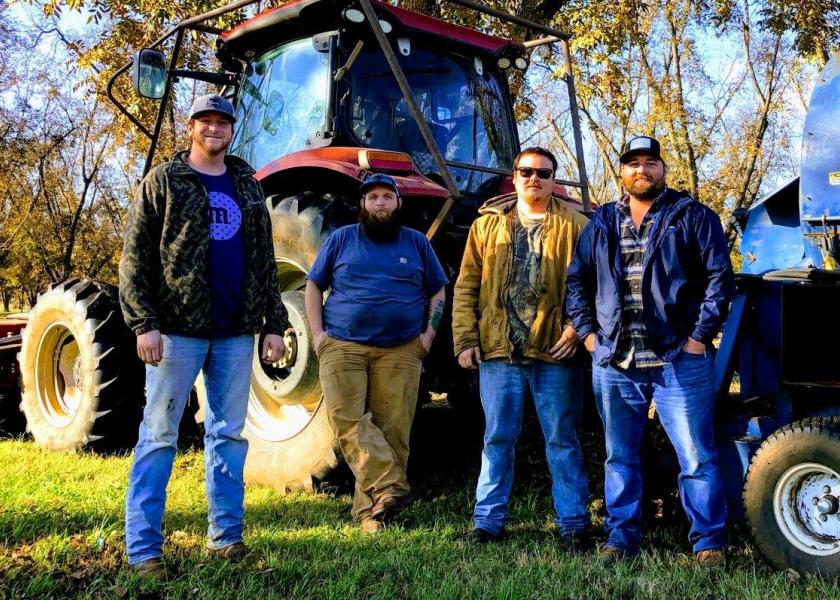
First-generation farmers face an inescapable imperative out of the gate: Take land or equipment nobody else wants. At 18 years young in 2012, Cason Anderson had no productive acres, very few family agriculture connections, and no equipment, but driven by desire to make a mark in agriculture, he knocked on doors, hopeful to gain a farming toehold by scavenging tiny bits of neglected ground. Simply, Anderson picked from below the bottom of the pile.
Nine years later, as the bootstrap farmer runs a three-man crew on 840 acres of pecan trees, and maneuvers his operation through a hornet’s nest of market pitfalls, Anderson, 27, has proved his mettle and possesses a grip on a financial concept often misunderstood by many of his societal contemporaries—delayed gratification: “Don’t worry about driving a fancy truck, wearing expensive sunglasses, or owning a Yeti cooler,” he says. “Buy some equipment, cows, skid-steer or whatever it may be, and do it.”
Smoke Gocken
Two hours south of Atlanta, in Perry, Ga., Anderson grew up in a salt-of-the-earth family rooted in 50 acres. He mowed the land with a 6’ bush hog, longed for a life outside, and proudly wore the blue jacket of the FFA, but beyond old neglected pecan trees and low pH Bahia grass, the Andersons were by no means farmers.
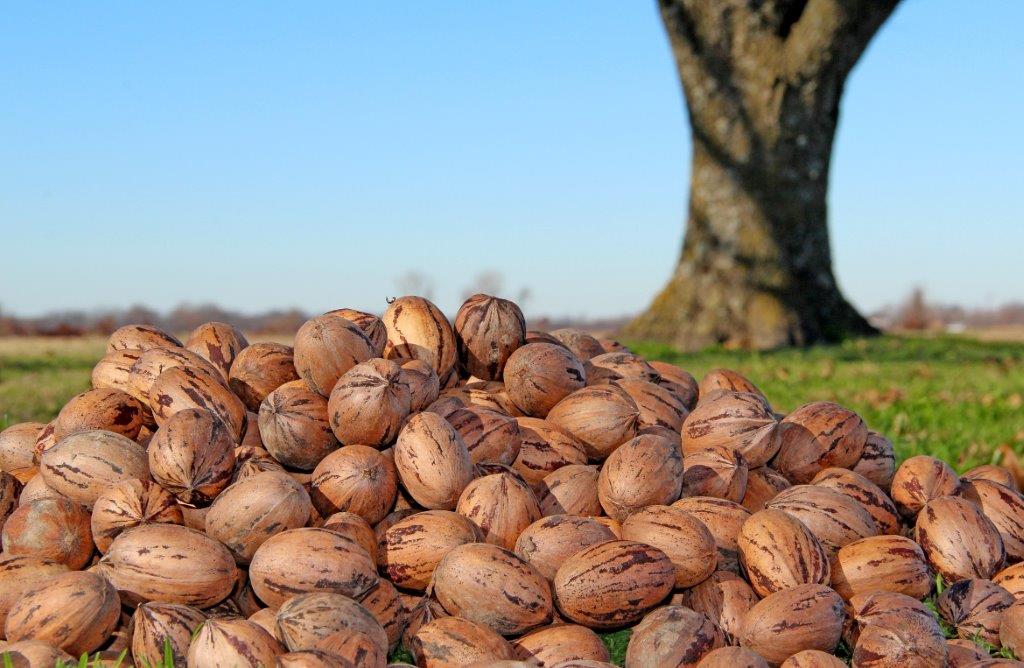
In fact, Anderson’s father, Robert was in construction and needed a chance to start his own business—a window of opportunity. After Robert built his own home in 1984, the new house was spotted by a local banker, who then hired Robert to build another house, setting off a domino chain. In short, a construction company was born. “I grew up riding around with my dad to each jobsite, and I’d pick up trash, shovel dirt and pour concrete—anything he said we were going to do, honestly,” Anderson recalls. “We didn’t have no money like a developer, but I’d see him give guys on the crews money for a Coke and candy bar after work. He liked to joke and cut up hoping to get a grin out of them. He treated everyone alike, right down to the low man on the totem pole.”
Twenty years later, Anderson found himself in the same spot where his father once stood, as an entrepreneur needing a chance. Originating over 850 miles away in Illinois, Anderson’s chance took the form of the unforgettable Smoke Gocken.
Solo Harvest
Years earlier, Smoke Gocken, a Midwest row crop farmer and grain elevator owner, left behind corn country and moved to Georgia from Cissna Park, Ill. In agriculture, many a retired grower gravitates toward small scale hay production, but Gocken’s attention was drawn by sweet corn and pecans. Taking the teenaged Anderson under his tutelage, Gocken harvested small orchards with a mechanized tree shaker. “Mr. Smoke was a really big influence on me” Anderson says. “Pecans, sweet corn, my ag teachers at Perry High School, and baling hay were all setting me up for a job in agriculture.
During Anderson’s senior year of high school in 2012, Gocken died unexpectedly, and in his passing, left Anderson with a chance. “I bought Mr. Smoke’s shaker and two rusty wagons. I didn’t know what I was doing beyond being a custom gatherer of pecans, but I did my first solo harvest as a college freshman, and saw we were anticipating a big crop, so I quit my job at Publix supermarkets and never had another job since.”
“Sure as Hell”
In 2012, the relatively quiet town of Perry—was no longer so quiet: Houston County was in the midst of development. “We were once pretty much rural, but it’s not like that anymore,” Anderson describes. “We see more and more farmland get sold or developed each year, and a lot of us farmers live or are headquartered in the county, but farm in the counties south and west to us.”
Armed with Gocken’s old $1,000 shaker (hooked to tractor, clamped to tree, PTO driven = nuts vibrated from limb to ground) Anderson spun the changes in Houston County to his favor, focusing on a multitude of Georgia mainstays: a house with 5 to 10 acres of pecan trees. “I couldn’t go buy a $100,000 tractor or 1,000 acres of land, but there were so many homes surrounded by bunches of trees and they were too small for any big guys to go after.”
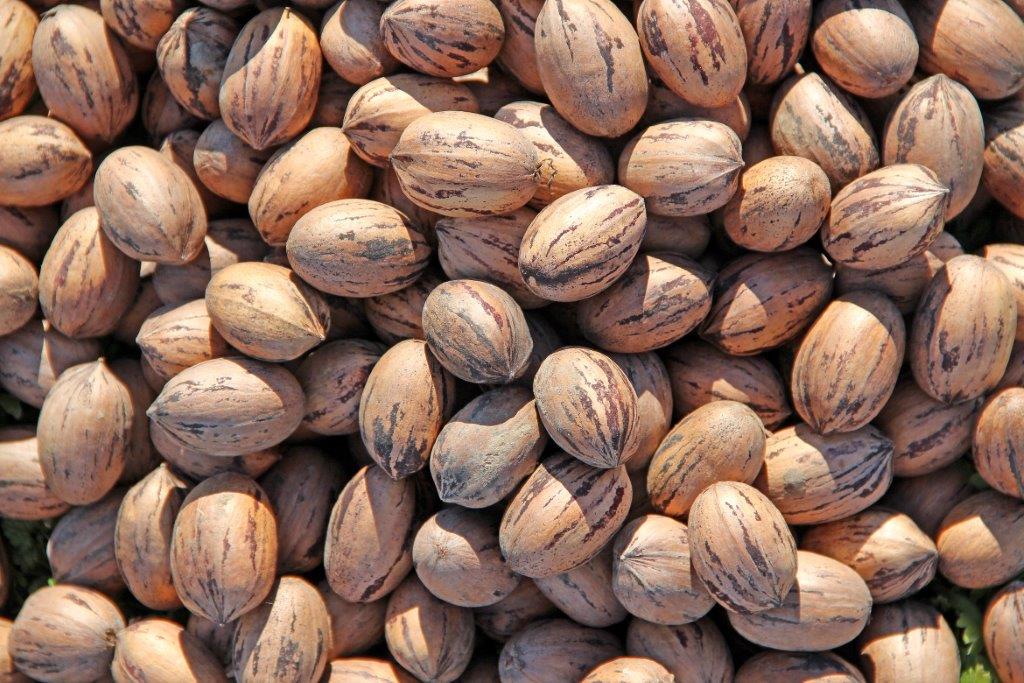
Anderson began knocking on doors and collected a handful of customers, and then stumbled on a 60-acre block of land on the cusp of neighborhood development. He contacted the owner and proposed a crop share agreement. Anderson cleared a minefield of fallen limbs, mowed 4’ tall grass and was able to harvest 64,000 lb. of pecans that fall. Sold and delivered, Anderson drove to the contractor and hand-delivered a $20,000 check. The elderly man fingered the check, looked at the dollar amount and quipped: “That’s not so much money when you’re my age.”
Anderson, with his farming career jumpstarted, answered back: “Well it sure as hell is when you’re 19.”
The Price of Farming
Nibbling up tiny orchards, Anderson bought a sprayer and financed a batwing mower, and had a toehold of 60 acres by 2013. He kept a tight lid on spending, lived at home, and searched for another patch of trees. “I’ll never forget when I got my first irrigated farm, 20 pristine acres in 2015. In 2016, I hired my first fulltime employee and things started working out real well after that. We still didn’t have many desired orchards at the time, but we did a lot of custom harvesting and shaking for others.”
Anderson paid cash for fuel, parts, and labor, but financed chemicals and fertilizer. “My advice to anyone starting out: ‘You need a little money to begin. Start young before you have children to feed and liabilities other than the farm; stay at home a few years and make your payments on equipment or land.’”
Unbridled ambition is a rickety foundation for a first generation farmer, but Anderson kept his ambition tempered with realism, and set up a series of attainable goals. “It’s been a long journey and it didn’t happen overnight. I remember when all I wanted was a cab tractor, or an irrigated orchard, or honestly the ability to mound up a wagon full of pecans like the big guys for everyone to see on the highway.”
Lanny Fenster, 79, a retired grower originally from Nebraska, describes Anderson as a farmer with priorities in proper order. “Most young guys want the biggest and baddest, but that’s not compatible with trying to get a farm started,” Fenster notes. “Cason recognizes every penny must go into the farm to have a chance of making it—no ifs, ands, or buts. Cason talks to every farmer he knows to find out how they did it, and he picks his friends carefully.”
Anderson’s entry into agriculture from the cold is highly impressive, Fenster contends: “Cason didn’t have farmland or family ties, he just made his own road. Basically, he did a fantastic job of research, went to surrounding counties and contacted orchard owners, and took the steps nobody else wanted to take. He’s standout and has what it takes, and he’s just built that way. I’ve been in farming a long time, and I know it takes a unique person to do what he’s done.”
Halloween to Christmas
Currently, Anderson’s pecan operation is 840 acres total (64 acres owned and the rest is leased) of which 520 are mature or in production and 320 are two to five years old. (Significant nut-bearing usually begins in year six or seven.) Every April, Anderson’s fulltime season begins with thunderous airplane-like noise from three air-blast sprayers mounted with 325 horsepower John Deere engines and 1,000 gallon tanks, delivering 100 gallons of water per acre with chemicals and fertilizer. Anderson’s three-man crew applies a variety of sprays until late August, with trees requiring four to 10 sprays depending on variety, weather, and insect pressure.
The spring and summer months are typically 12 hour days, rolling at 1.6 to 2.2 miles per hour in order to cover over 500 acres (spray cycle reboots every 14-21 days). Combined with mowing, managing herbicide kill-strips along tree rows, and monitoring drip or micro jet irrigation, Anderson juggles a host of tasks.
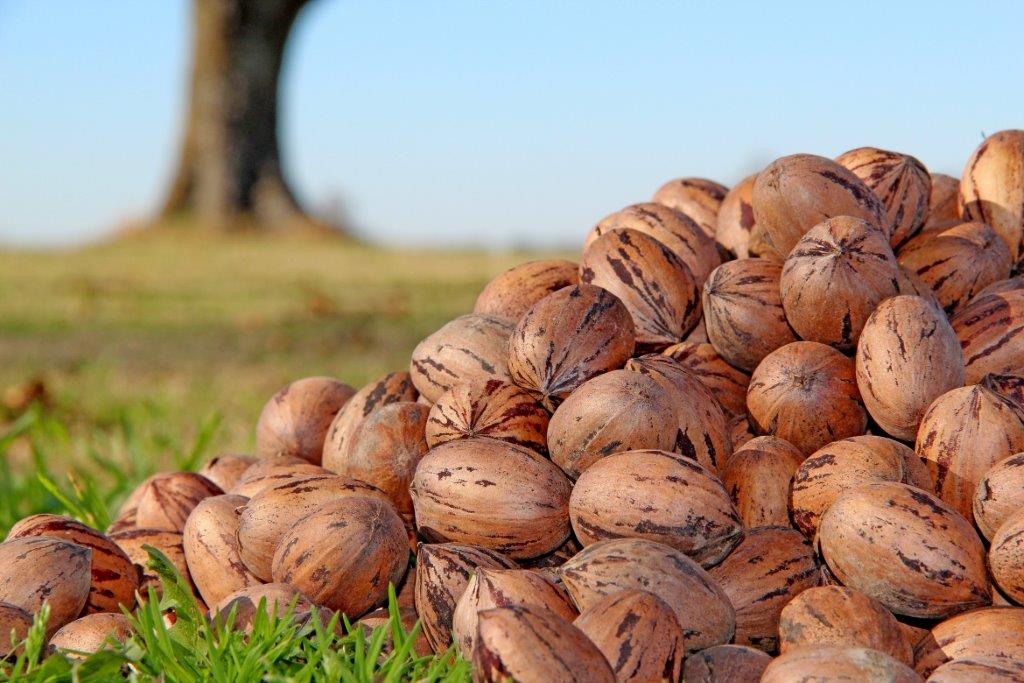
By late July, he rides the farms, checks the books on yield history over the previous five years and estimates the total pounds hanging in the trees, intentionally staying conservative to ensure the guesswork doesn’t go high. His trees typically yield 1,000-1,800 in-shell lb. per acre. “Every once in a while, you can get over 2,500 lb., but if you can steadily make 1,200 lb. each year, that’s good.” (The average U.S. yield in 2020, was 752 lb. per acre, according to USDA.)
Pecans are not a publicly traded commodity, and Anderson’s crop is not contracted. Buyers touch base in August and September with price offers, and Anderson provides a rough idea of what he has, but he is not held to the projection. “We can sell, shell or do whatever we want with the pecans, but there is a local buyer (Easterlin Pecan Co.) that buys very much of the state. Their checks, weights and word are good and that’s who I like to deal with.”
According to USDA, Georgia’s prodigious pecan production placed the state at No. 1 nationwide in bearing acreage with 129,000 acres in 2020 (402,000 total U.S. bearing acres), as well as No. 1 in utilized production (in-shell) at 142 million lb.
From roughly Halloween to Christmas, Anderson’s crew is in full-bore pursuit of the year’s bounty: One shaker, two sweepers, and one harvester. In 2020, Anderson’s yields were stout at 757,000 lb., some of the best numbers he had ever grown, but big yields couldn’t cover an anemic market. “We’ll always have pests, disease, and equipment breakdowns, but we can’t control the price we receive or bad weather.”
Pecan prices, starting in 2017, have taken a major nosedive due to the tariff fight (47%) with China and complications from Covid-19. For example, Anderson watched as pre-tariff prices on a particular variety climbed to $3.35 per pound, but crashed to $1.35. Already running lean, Anderson felt the body blow and now he waits and hopes for a market recovery. “Super high yields don’t make up for these low, low prices. I’m like a lot of farmers—I farm year to year. We had a super crop to help with bad prices in 2020, but every year isn’t that big.”
“Doing What I Love”
And what about continued expansion? How many acres would suit Anderson? Roughly 1,000 would be a ballpark target, he explains: “I always tell young guys like me, ‘You want more and more acres, but eventually you get those acres and just want to be able to work them smoothly for a profit. Opportunity comes, and someone will trust you with their land to look after or they want to see you own it.’”
“Someday I hope to have a child or my nephew work with me on this farm,” he continues, “and another thing I hope for is to see my farm get a centennial award way down the line, even though I won’t be able to see it.”
After nine years of farming, Anderson is deeply thankful for a kind hand offered by many individuals in agriculture. “I’m able to farm because of my parents, Mr. Smoke and all the landlords who took a chance on me. I’ll never forget many of the farmers in Houston County and Peach County that gave me so much advice and help. There are many to name, but the ones that come to mind are Mike Jaros, Dennis James, Lanny Fenster, Tom Cleveland, Trent Mason, Greg Gatliff, and Jim Parks. Some would tell me when and what to spray, others owner-financed a machine for me or let me pay when the crop came in.”
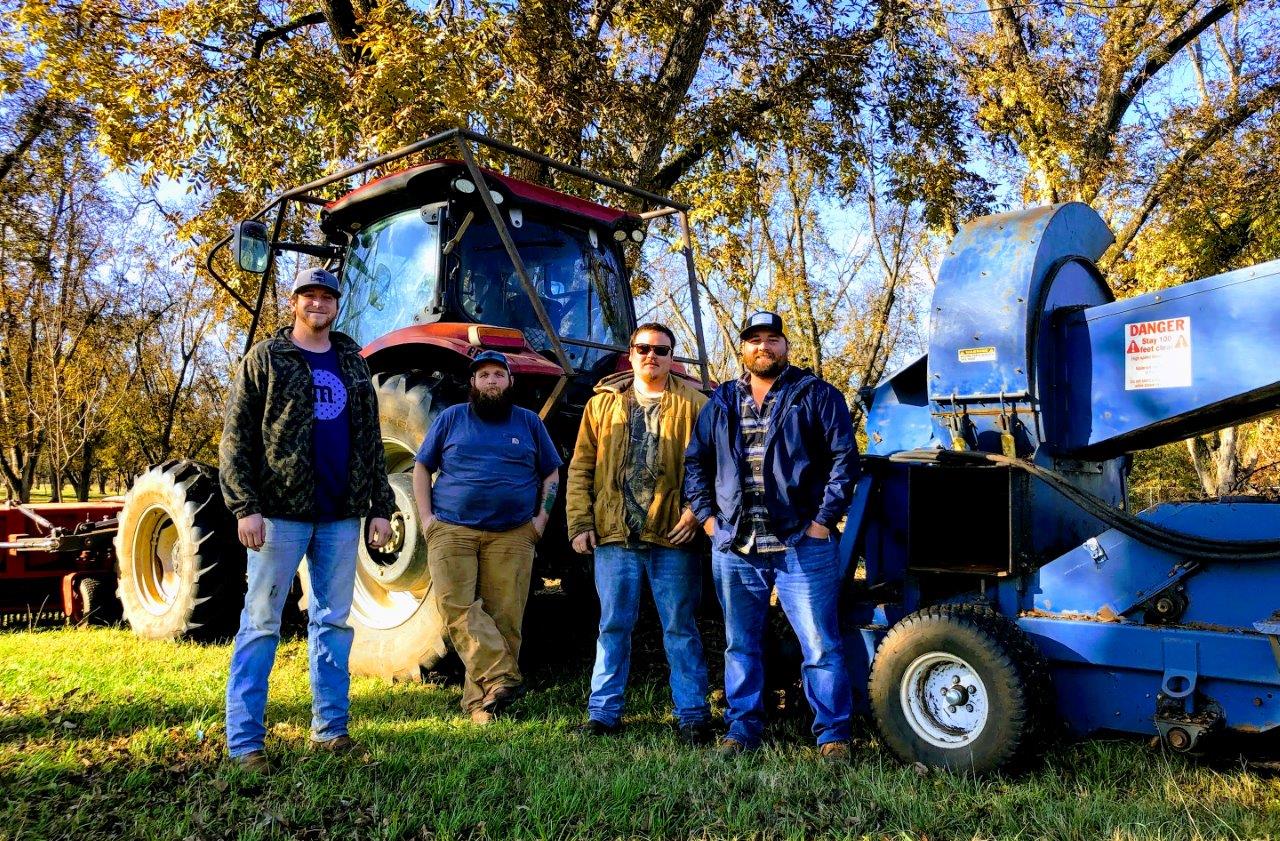
Without question, Anderson will also never forget the role of Neil Skipper. At the state FFA convention of Anderson’s senior year, the local Case IH dealer (Tidewater Equipment) displayed a tractor. “He (Skipper) was one of the few salesmen that took me serious at a young age,” Anderson explains. “This was when grain was really high and John Deere 4440’s were so expensive. He sold me my first ‘big tractor’ with a cab on it around one year after that convention.”
Nothing comes easy in agriculture, particularly in the first generation, but a neutral observer would be hard-pressed to find a more humble or affable farmer than Anderson, who remains grateful for the opportunity. “I’m just a farmer wanting to make it. I make my payments, have a great wife and family, and I get to do what I love every day.”
For more, see:
The Arrowhead whisperer: Stunning Indian Artifact Collection Found on Farmland
Fleecing the Farm: How a Fake Crop Fueled a Bizarre $25 Million Ag Scam
Truth, Lies, and Wild Pigs: Missouri Hunter Prosecuted on Presumption of Guilt?
US Farming Loses the King of Combines
Ghost in the House: A Forgotten American Farming Tragedy
Rat Hunting with the Dogs of War, Farming's Greatest Show on Legs
Misfit Tractors a Money Saver for Arkansas Farmer
Predator Tractor Unleashed on Farmland by Ag's True Maverick
Government Cameras Hidden on Private Property? Welcome to Open Fields
Farmland Detective Finds Youngest Civil War Soldier’s Grave?
Descent Into Hell: Farmer Escapes Corn Tomb Death
Evil Grain: The Wild Tale of History’s Biggest Crop Insurance Scam
Grizzly Hell: USDA Worker Survives Epic Bear Attack
A Skeptical Farmer's Monster Message on Profitability
Farmer Refuses to Roll, Rips Lid Off IRS Behavior
Killing Hogzilla: Hunting a Monster Wild Pig
Shattered Taboo: Death of a Farm and Resurrection of a Farmer
Frozen Dinosaur: Farmer Finds Huge Alligator Snapping Turtle Under Ice
Breaking Bad: Chasing the Wildest Con Artist in Farming History
In the Blood: Hunting Deer Antlers with a Legendary Shed Whisperer
Corn Maverick: Cracking the Mystery of 60-Inch Rows







